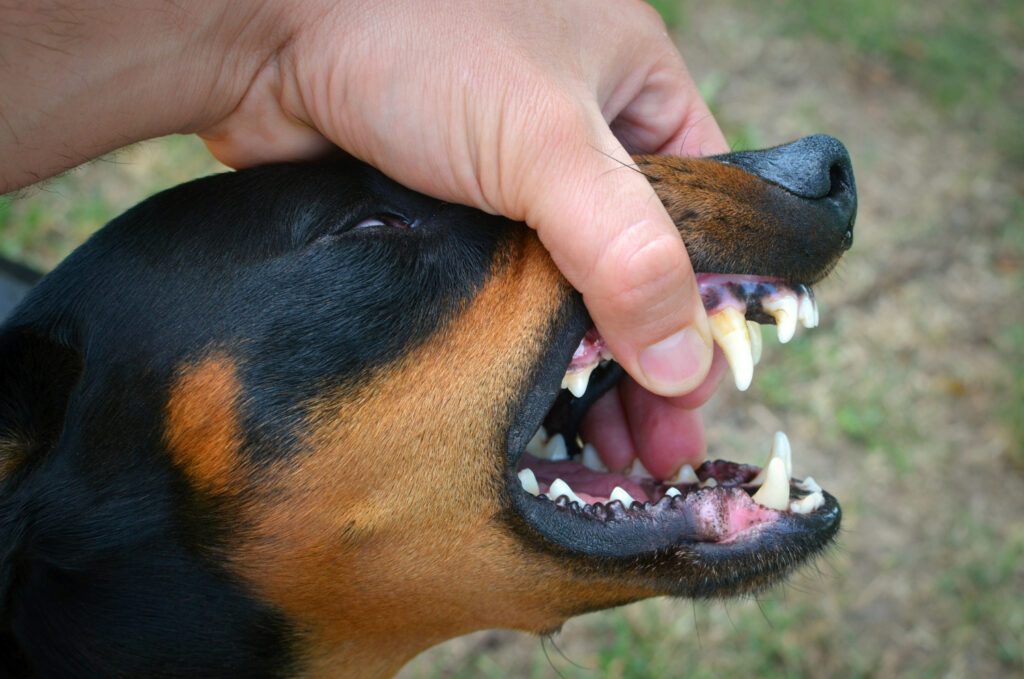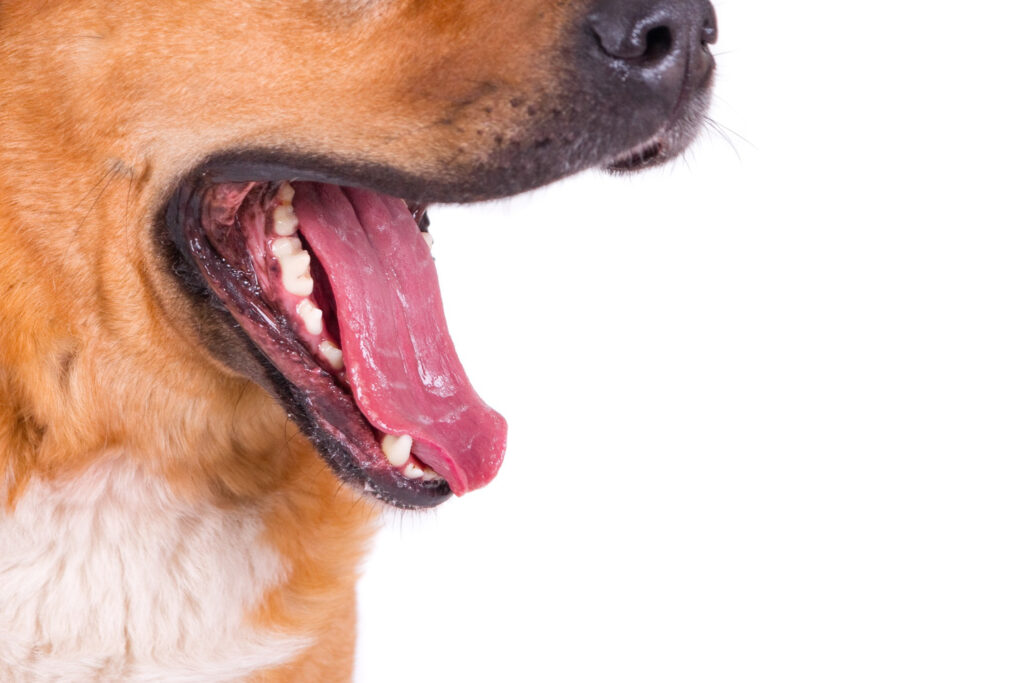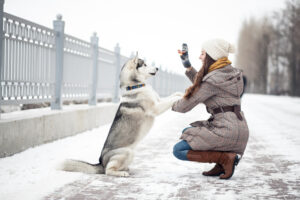We’ve all heard the age-old saying that are Dogs Mouth Cleaner than Humans. But is there any truth to this popular claim? Many pet owners swear by it, but others are skeptical. After all, dogs have been known to eat some pretty questionable things, right? So, let’s dive into the fascinating world of canine oral hygiene and find out if our furry friends really do have immaculate mouths or if it’s just another urban legend. Hold on tight as we explore the surprising facts about bacteria, infections, and even skin health when it comes to your pup’s slobbery kisses!
Can You Get Infections and Diseases From Dog Saliva?
When it comes to bacteria, dogs and humans both have their fair share. While it’s true that dogs’ mouths contain different types of bacteria than ours, it doesn’t necessarily mean they are cleaner. Dogs explore the world with their mouths, often licking various surfaces or even eating things they find on walks. This exposes them to a wide array of potentially harmful bacteria.
One particular concern is bacterial infections. Dogs may carry bacteria like Pasteurella or Capnocytophaga in their saliva, which can cause skin infections if they break the skin barrier through biting or scratching. However, these instances are relatively rare and usually occur when there is an open wound involved.
Another viral infection that can be transmitted through dog saliva is rabies. Rabies is a serious disease that affects the central nervous system and can be fatal if not treated promptly after exposure. Thankfully, cases of rabies in domesticated dogs are quite rare nowadays due to vaccination protocols.
So while your dog’s mouth may harbor some different bacteria than yours, the risk of getting an infection or disease from their saliva is generally low unless there are specific circumstances involved.
Is Dog Saliva Bad For Your Skin?
Many people wonder if allowing their furry companion to shower them with slobbery kisses could have adverse effects on their skin health. The truth is that dog saliva contains enzymes called lysozymes that have antimicrobial properties which help kill certain types of bacteria.
However, despite these potential benefits, excessive contact with dog saliva can sometimes lead to irritation for individuals with sensitive skin or existing allergies. It’s always essential to listen to your body and pay attention to any reactions you might experience after prolonged exposure to your pup’s licks.
Is Dog Saliva Harmful To Babies?
If you’re a new parent or expecting a baby soon, you might be concerned about whether letting your fur baby smother your little one in kisses is safe. While dogs generally mean well, it’s crucial
Can You Get Infections and Diseases From Dog Saliva?
You may have heard the age-old saying that a dog’s mouth is cleaner than a human’s. But is that really true? While it’s true that dogs have certain enzymes in their saliva that can help kill bacteria, it doesn’t mean their mouths are completely free of germs.
Bacterial infections are one concern when it comes to dog saliva. Dogs can carry various types of bacteria in their mouths, such as Pasteurella, which can cause severe infections if they come into contact with an open wound or enter your bloodstream through a bite. This is why it’s important to thoroughly clean any wounds caused by a dog bite and seek medical attention promptly.
Another viral infection that can be transmitted through dog saliva is rabies. Rabies is a serious disease that affects the central nervous system and can be fatal if left untreated. It’s typically transmitted through bites from infected animals, including dogs.
While the risk of contracting infections or diseases from dog saliva may not be extremely high, it’s still important to take precautions, especially if you have an open wound or compromised immune system.
Remember to always wash your hands thoroughly after handling your pet or coming into contact with their saliva. Avoid letting your dog lick your face or any areas where you have broken skin.
If you’re concerned about keeping yourself safe from potential infections, consider training your dog not to lick people or investing in products like bitter sprays designed to discourage licking behaviors.
While dogs do possess some natural defenses against bacteria in their mouths, there is still a risk of infection and disease transmission through their saliva. Taking appropriate precautions such as washing hands regularly and avoiding direct contact with open wounds will help reduce these risks for both humans and our furry friends.
Bacterial Infections
When it comes to the cleanliness of a dog’s mouth versus a human’s, one concern that often arises is the potential for bacterial infections. After all, dogs have been known to lick just about anything they can get their tongues on! But does this mean that we should be worried about getting sick from our furry friends?
It’s true that bacteria are present in both dogs’ and humans’ mouths. However, the types of bacteria differ between species. While some bacteria found in a dog’s mouth may not cause any harm to them, they could potentially be harmful to humans.
One example is Pasteurella multocida, which can be found in the mouths of many healthy dogs. This bacterium can cause painful skin infections if it enters an open wound or bite.
Another concern is Capnocytophaga canimorsus, which normally resides in a dog’s oral cavity but has been known to cause serious infections in humans with weakened immune systems.
While these examples highlight potential risks, it’s important to note that most bacterial infections from dog saliva are rare and typically occur under specific circumstances. By practicing good hygiene and keeping your dog clean and healthy, you can minimize these risks significantly.
Bacterial infections from a dog licking you or sharing utensils are uncommon but possible. It’s always best to exercise caution by washing your hands thoroughly after contact with your pet or avoiding close contact when necessary
Rabies (Viral Infection)
Rabies is a viral infection that can be transmitted through the saliva of infected animals, including dogs. It is a serious and potentially fatal disease that affects the central nervous system.
When it comes to comparing the cleanliness of dogs’ mouths to humans’, rabies should definitely be taken into consideration. This deadly virus is primarily transmitted through bites or scratches from an infected animal, with dogs being one of the main carriers.
If your dog has been exposed to rabies and you come into contact with their saliva, there is a risk of transmission if there are any open wounds or mucous membranes present. It’s important to note that while rare, human cases of rabies still occur worldwide.
The best way to protect yourself and your furry friend from this viral infection is by ensuring that your dog receives regular vaccinations against rabies. Additionally, avoid contact with wild animals and stray dogs who may carry the virus.
While it may be debatable whether a dog’s mouth is cleaner than a human’s in terms of bacteria, when it comes to deadly viruses like rabies, caution should always be exercised. Stay informed on proper vaccination protocols for your pet and take necessary precautions to prevent exposure to diseases like rabies.
Is Dog Saliva Bad For Your Skin?
Many dog owners wonder if their furry friend’s saliva can be harmful to their skin. After all, dogs love to give us slobbery kisses and lick our hands and faces. But is this harmless display of affection actually bad for our skin?
Dog saliva contains a mixture of enzymes and bacteria that help them break down food particles while grooming themselves. While some of these bacteria are normal and harmless, others can cause infections in humans.
One common concern is the presence of Pasteurella bacteria in dog saliva, which can lead to painful skin infections if it enters a human wound or cut. Another bacterium commonly found in dog mouths is Capnocytophaga, which rarely causes illness but has been known to cause serious infections in people with weakened immune systems.
Additionally, some dogs may carry other types of bacteria such as E.coli or Salmonella in their mouths, which could potentially lead to gastrointestinal issues if transferred through contact with broken skin.
However, it’s important to note that not all bacterial strains present in dog saliva are harmful. Many pet owners have experienced minor scratches or scrapes from their pets without any negative consequences.
To minimize potential risks associated with dog saliva on your skin, it’s recommended to wash any areas that have come into contact with your pet’s mouth thoroughly with soap and water. Avoid allowing your dog to lick open wounds or irritated areas on your body.
It’s also worth mentioning that individual sensitivities vary greatly among individuals. Some people may experience irritation or allergic reactions when exposed to dog saliva more than others.
If you notice any unusual symptoms after coming into contact with your dog’s saliva (such as redness, swelling, or itching), consult a healthcare professional for further evaluation.
Is Dog Saliva Harmful to Babies?
One concern that many parents have is whether dog saliva can be harmful to their babies. After all, dogs love to give kisses and often lick the faces of those they love, including little ones. But should you be worried about your baby coming into contact with dog saliva?
It’s important to note that while dog saliva does contain bacteria, it is generally not harmful to humans or babies. In fact, some studies suggest that exposure to a variety of bacteria early in life may actually strengthen a child’s immune system.
Keep Reading: https://dogpets.org/dog/how-to-draw-a-dog/
However, there are still some precautions you should take when it comes to dogs and babies. First and foremost, always supervise interactions between your baby and your furry friend. This will ensure that any licking doesn’t become too excessive or potentially overwhelming for your little one.
Additionally, be mindful of any open cuts or sores on your baby’s skin. While rare, there have been cases where certain bacteria found in dog saliva have caused infections in individuals with compromised immune systems.
As long as you exercise caution and good hygiene practices (such as regular handwashing), allowing your baby to interact with a well-cared-for family pet can provide both physical and emotional benefits without posing significant risks.
Remember: Always consult with a healthcare professional if you have specific concerns about your baby’s health or safety around animals.
How to Keep Your Dog From Licking You
If you’re a dog owner, you’ve probably experienced the enthusiastic licking of your furry friend at some point. While it may be a sign of affection, excessive licking can become bothersome and even unhygienic. So, how can you keep your dog from showering you with slobbery kisses?

It’s important to understand why dogs lick in the first place. Licking is a natural behavior for dogs; it’s their way of communicating and showing love. However, if your dog’s licking becomes obsessive or invasive, there are steps you can take to manage it.
One approach is redirection. When your pup starts going in for a lick fest, simply redirect their attention by offering them an alternative activity or toy that they enjoy. This will help distract them from wanting to constantly lick you.
Another tactic is teaching the “leave it” command. By consistently reinforcing this command during training sessions, your dog will learn to stop engaging in unwanted behaviors like excessive licking.
Additionally, make sure to provide plenty of mental and physical stimulation for your furry companion so that they don’t resort to compulsive licking out of boredom or anxiety.
Maintaining good hygiene practices is essential when dealing with excessive licking. Keep yourself clean and dry as much as possible. Especially after outdoor activities or walks where dirt and bacteria may have been picked up on your paws.
By implementing these strategies consistently and with patience, you can help curb your dog’s urge to lick excessively. While still maintaining a loving bond between you both. Remember that each dog is unique. What works for one might not work for another – so be observant and adjust accordingly!
Now go ahead and enjoy some quality time with your beloved four-legged friend – minus all the wet kisses!
How to Keep Your Dog’s Mouth Clean
It’s important to remember that while there might be some truth to the idea that a dog’s mouth can be cleaner than a human’s in certain aspects. It doesn’t mean that their saliva is completely harmless. Dog saliva can contain bacteria and viruses that have the potential to cause infections and diseases.
To keep your dog from licking you excessively, it’s essential to train them with positive reinforcement techniques. And redirect their behavior when necessary. Provide them with plenty of toys and chew treats to keep them occupied, as this can help reduce their urge to lick.
Maintaining your dog’s oral hygiene is also crucial for their overall health. Brushing your dog’s teeth regularly using pet-friendly toothpaste will help remove plaque buildup and prevent dental issues. Additionally, providing them with appropriate chew toys or dental treats can aid in keeping their teeth clean.
Regular visits to the veterinarian for check-ups are vital as well. Your vet will be able to assess your dog’s oral health and provide guidance on how best to maintain it.
While we may not definitively say whether a dog’s mouth is cleaner than a human’s overall, taking proactive steps towards keeping our furry friends’ mouths clean will undoubtedly contribute positively to their well-being. So remember: love your pup unconditionally but take care of those kisses too!


